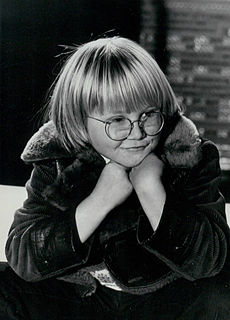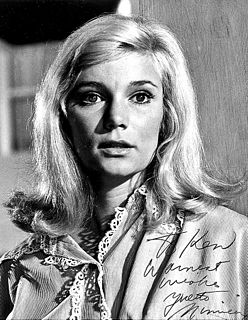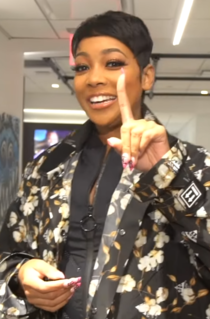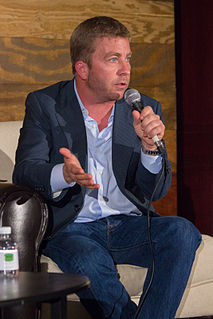A Quote by Wyatt Cenac
If you wanna be the comic relief in a big-budget movie, go to L.A. because there are five auditions in a week that you could hit up, and that increases your chances of getting those jobs.
Related Quotes
When I was a kid I was a big fan of the Universal Monsters movies of the 1930's and the 1940's. I loved movies like The Wolfman (1941) and Dracula (1931). I really wanted to be in those movies. Eventually I started nagging my parents about it, and it turned from, "I wanna be in a monster movie! I wanna be in a monster movie!" to "I just wanna be in a movie." So I think my parents just thought that if they took me to one audition I'd see how boring it was and I wouldn't wanna do it. But I ended up getting the part, and I got a bunch of roles after that as well.
Now, everybody knows the basic erogenous zones. You got one, two, three, four, five, six, and seven. ... OK, now most guys will hit one, two, three and then go to seven and set up camp. ... You want to hit 'em all and you wanna mix 'em up. You gotta keep 'em on their toes. ... You could start out with a little one. A two. A one, two, three. A three. A five. A four. A three, two. Two. A two, four, six. Two, four, six. Four. Two. Two. Four, seven! Five, seven! Six, seven! Seven! Seven! Seven! Seven! Seven! Seven! Seven! Seven! Seven! [holds up seven fingers]
The good thing about doing a comic that's entirely my own voice as a debut is that people approached me with similar jobs, with stuff that they knew that I could do justice to because they had read what I'd already done. It meant that I was getting jobs that I was actually interested in, and I didn't have to prove myself on someone else's property.
I don't know what the misconceptions are, but I approach a small budget, artsy, independent movie in the same way as a big budget, commercial Hollywood movie. I don't get into those [details]. I have to get into my character and I concentrate on that, on the story, on researching, and on certain training if I have to be prepared physically. I think that's the most important thing.
The bigger the budget, the more people that you have to coordinate and it's not easy to do that always because, not only do people have trouble communicating in that way, but often there are internal disagreements and everybody is not necessarily on the same page. Even in a big-budget movie with famous actors and directors, everybody could be on a completely different page. The director has to figure out a way of getting everybody on the same page, more or less, and keeping them there.
I came out to Los Angeles for a couple of meetings in the summer of 2005, and I ended up getting a movie called Firehouse Dog for Fox. And I thought, "Oh, man. I'm doing a movie. Maybe I'll work a lot more now. I'm an actor now." Then, for eight, nine months I didn't work after that. After that movie, I began to get some guest star roles, fairly consistently, but because I had been so presumptuous before in thinking that the other jobs would lead to something, I realized: "Just get up. Go to work. Go home. This is your job just like everyone else's job."


































